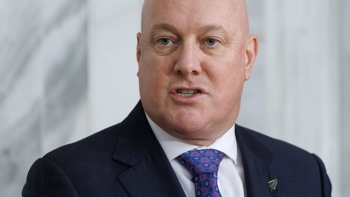A North Shore doctor says he is waking up at 4am worried about his patients after working gruelling 12-hour shifts seeing up to 62 patients a day.
"I'm burnt out and I've already been in tears ... the whole health system is falling to bits," medical director at Northcare Accident & Emergency Peter Boot told the Herald.
His comments come as hospitals across the country have been inundated with people fighting Covid and other winter bugs. GPs were also seeing an overflow of patients diverted from overwhelmed emergency departments (EDs) due to long waits.
New data, released under the Official Information Act, revealed nearly 3000 patients waited longer than six hours to be treated at New Zealand's busiest ED last month.
The target is for 95 per cent of ED patients to be admitted, discharged or transferred within six hours.
Last week, the Herald reported a "healthy" 50-year-old women died with a brain bleed after allegedly being told by staff at Middlemore Hospital's ED there would be an eight-hour wait before she was examined, sparking an urgent review.
/cloudfront-ap-southeast-2.images.arcpublishing.com/nzme/X6NEVCKSRNVIJQ3GSTYDVBMMX4.jpg)
Health Minister Andrew Little acknowledges the huge workload of GPs and says it is not sustainable. Photo / Mark Mitchell
Boot said Monday was the busiest day he had experienced in his nearly 40-year career.
"It's terrible, it's very, very tough. However I come from a family of doctors and we are not quitters," Boot said.
Lately, Boot had started work at 7am and didn't leave the clinic until 7pm. On Monday, he saw 62 patients with many coming from ED where the wait times were unbearable.
To perform "safe proper medicine" a GP should be seeing about 20 patients a day, he said.
"It is very bad."
He said some people couldn't see their own GPs because doctors were tired and had "given up during Covid" or were frightened of dealing with respiratory illnesses.
"There isn't enough doctors and they are just overrun and don't have any more appointments."
"I've had to cancel my last three lots of leave and I usually wake up about 4am thinking about my patients and the scary issues at the moment."
Broadcaster Toni Street took her injured child to Boot's clinic to treat a head wound on Monday.
Yesterday, she thanked the overwhelmed medical staff and revealed to the Herald her son was Boot's 58th patient that day and the doctor had been close to burnout.
The OIA figures show Middlemore Hospital's ED managed only 68 per cent of patients within six hours last month, leaving 32 per cent (2791) waiting longer than the target treatment time.
Delays at the South Auckland ED had worsened dramatically since last winter when 79 per cent of patients were managed within six hours, still below target.
However, Health Minister Andrew Little disputed the data, saying ED wait times fluctuated and it was impossible to establish a pattern from one month.
"One month data does not tell a picture about the system as a whole. Winter is a particularly bad time, they have bad months as suddenly a lot more people turn up. We have a huge surge at the moment."
The Ministry of Health would work with "problematic DHBs" to help ease patient overflow when concerning trends were identified, he said.
Little acknowledged that GPs were working "extraordinary hours" which wasn't sustainable.
He suggested GPs may need to reassess their workloads.
For instance, "whether someone with a muscle strain but is otherwise healthy and fit needs to see a GP or if they could go straight to physiotherapist."
Little also suggested a person who was feeling "fluey" but was otherwise healthy could be seen by another health professional like a nurse practitioner.
/cloudfront-ap-southeast-2.images.arcpublishing.com/nzme/XI5XLUC7IEDVG4B5NVGIF5SPDE.jpg)
National's health spokesman Shane Reti says a comprehensive plan is needed for after-hours care. Photo / Mark Mitchell
National's health spokesman Shane Reti said the OIA data showed the longest a patient waited at Middlemore ED last month was 11 and half hours.
Reti said doctors working in primary care were absolutely exhausted.
A comprehensive plan was needed for after-hours care, in light of the Middlemore death.
On Friday, the Herald revealed 18 out of 20 District Health Boards didn't achieve that national standard between October and December last year.
Royal New Zealand College of General Practitioners medical director Dr Bryan Betty said general practice and hospitals were at capacity, and the country was in a crisis.
He said GPs were already grappling with staffing shortages and a winter surge in flu cases coupled with Covid-19 were putting added pressure on practices.
"This is short term, there are longer-term issues here about how strategically we solve the problem that's emerged which is not enough workforce in certain areas of New Zealand to deliver care."
Betty would like to see the Government and Health NZ develop a strategy to address the shortage of GPs and nurses.
Reti criticised the Government, saying they were failing sick New Zealanders when they needed them the most.
Take your Radio, Podcasts and Music with you









